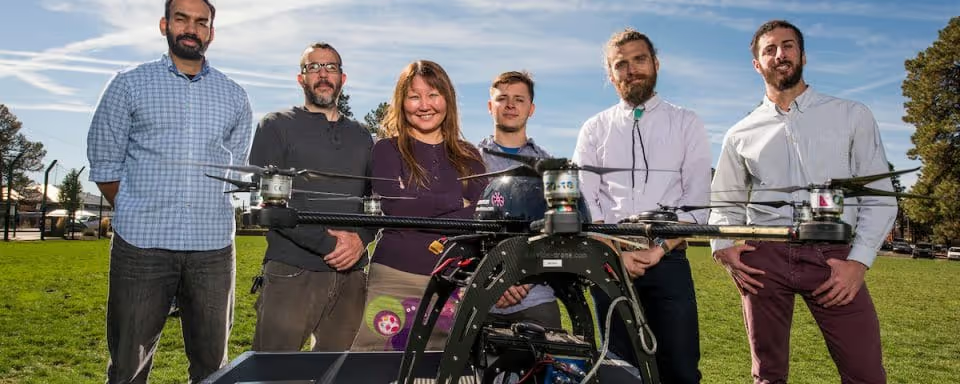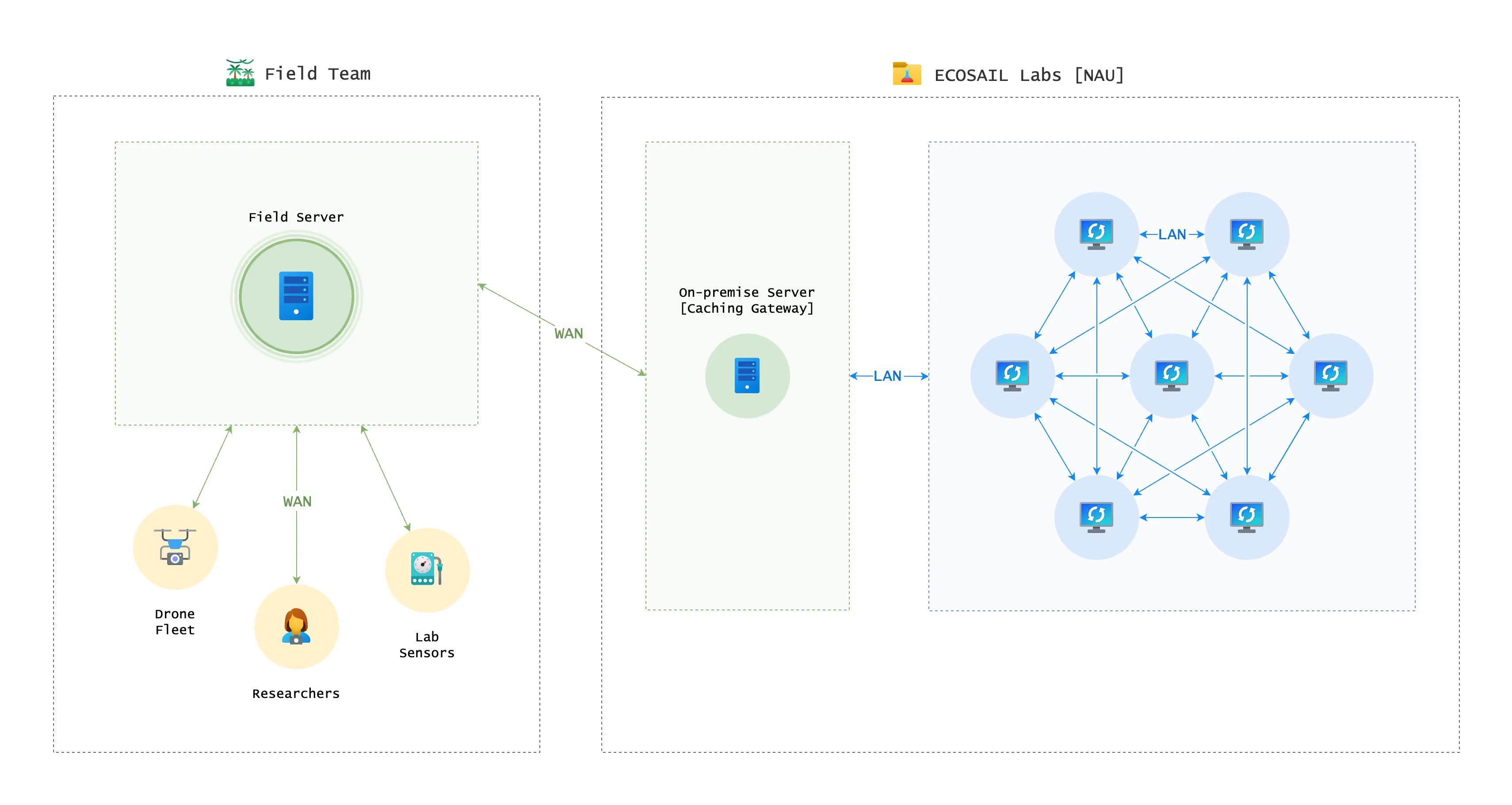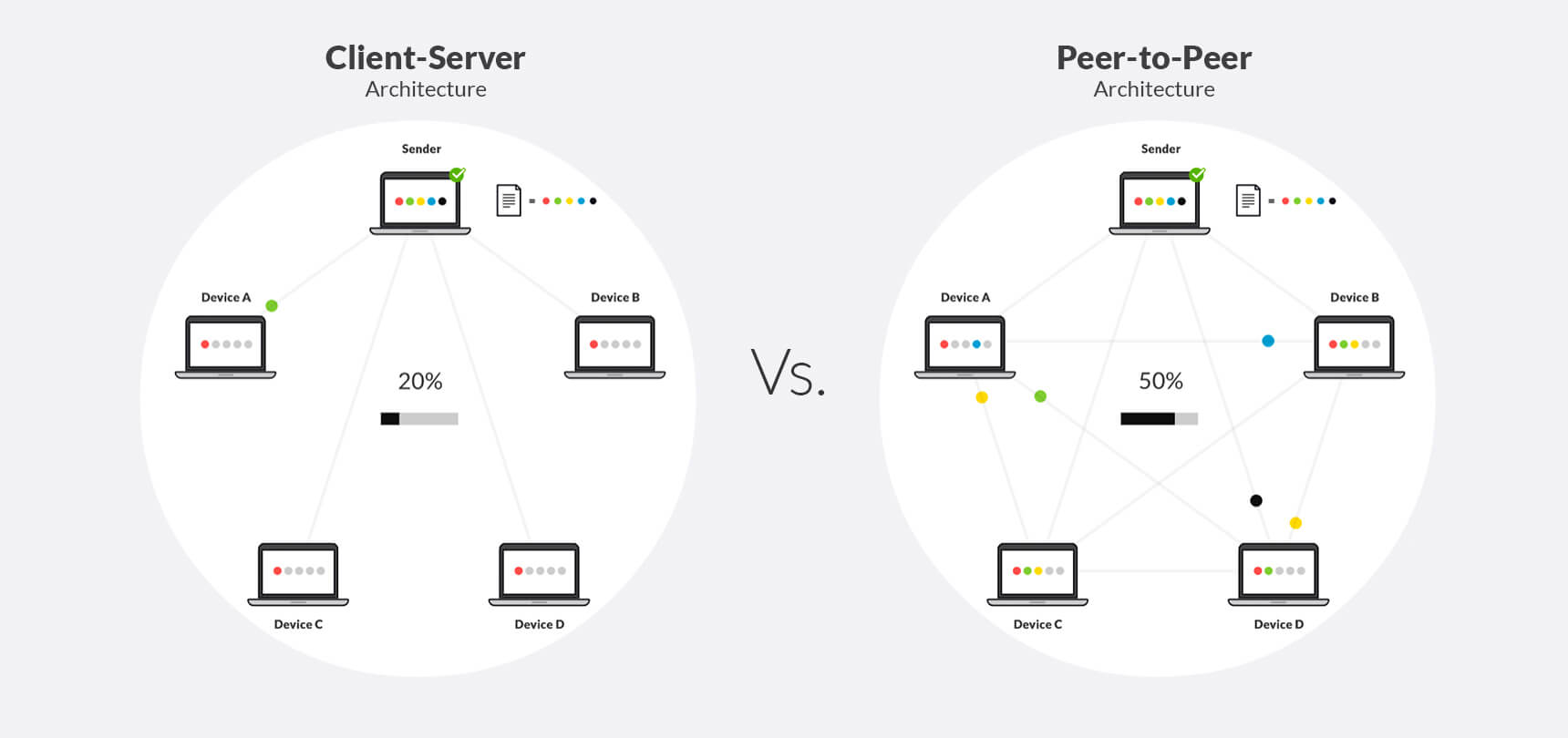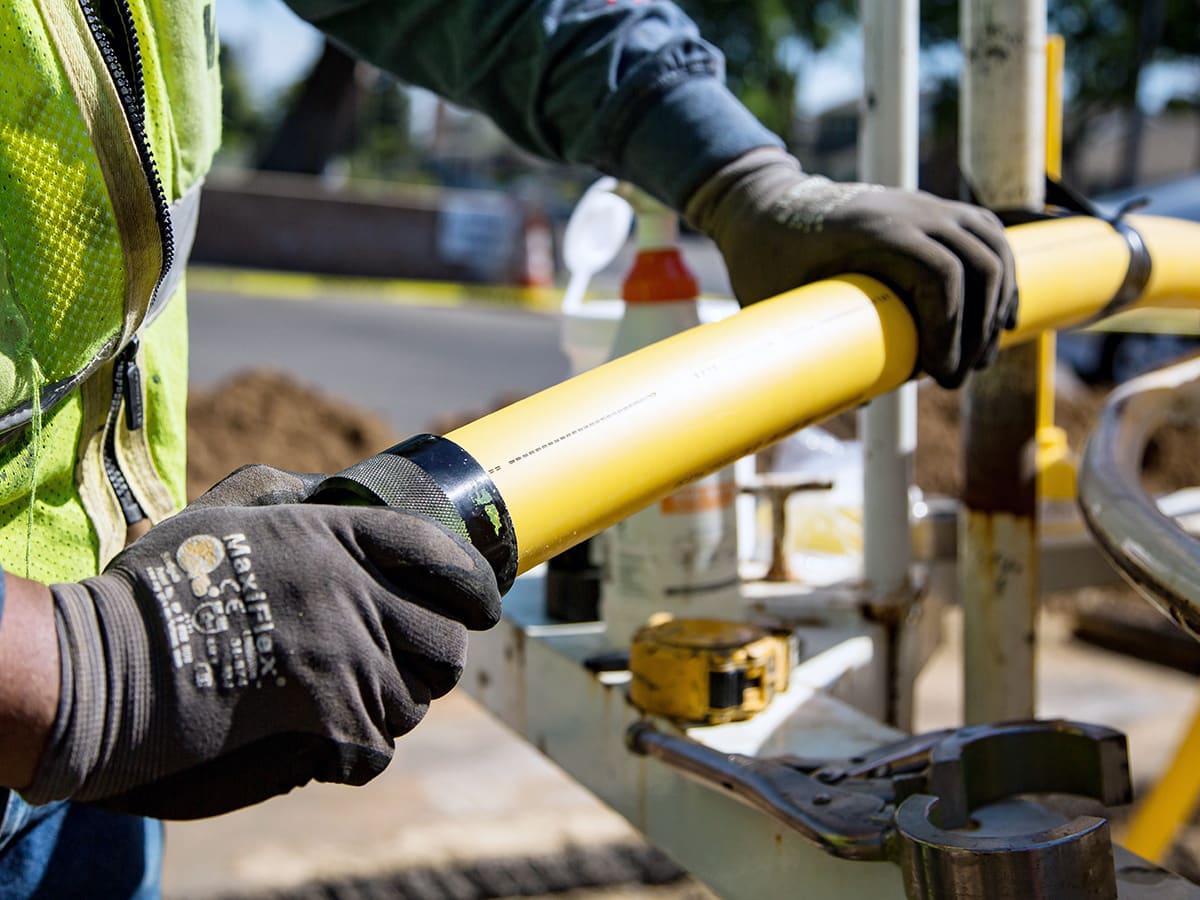How NAU Monitors the Effects of Climate Change with Terabytes of Drone Data
Northern Arizona University’s Ecosystem Science and Innovation Lab overcame big data challenges at the edge to drive real-time ecoinformatic insights.
Northern Arizona University (NAU), located in Flagstaff, aims to be the nation’s preeminent engine of opportunity, transforming lives and enriching communities through high-quality academics and impactful scholarship. Their School of Informatics, Computing, and Cyber Systems (SICCS), with Electrical Engineering, Computer Science and Informatics (including ecoinformatics) under one roof, integrates a range of educational programs and interdisciplinary research.
Operating within NAU is Alexander Shenkin, PhD, an Assistant Research Professor and Director of the Ecosystem Science and Innovation Lab, or ECOSAIL.
Dr. Shenkin’s lab leads cutting-edge research on ecosystem responses to management, disturbance, and climate change. This research involves vast streams of data that must be centralized into one storage platform to power real-time scientific insights. They chose Resilio Active Everywhere to move data and research forward faster.
The Challenge
Research at ECOSAIL relies on collecting and analyzing vast amounts of ecological data, primarily sourced from remote sensing technologies, such as drones and satellites. The lab conducts aerial surveys of forest ecosystems, capturing high-resolution images and data from global locations, including tropical rainforests.
Each drone flight can generate hundreds of gigabytes of raw image data, which NAU must retain for reprocessing, analysis, and long-term research. Over the years, data has accumulated across multiple storage devices, leading to difficulty locating, accessing, and managing information efficiently.
“When you have a lot of data and store it here, there, and everywhere, you have to remember what is where,” explained Shenkin. “It made me anxious because I wasn’t able to find what I needed when I needed it.”


Three significant hurdles prevented the lab from facilitating its research. The first was its data volumes. Because the lab maintains up to 150 terabytes of data across millions of files, traditional data management methods couldn’t meet its needs. Consumer cloud storage and synchronization tools failed to provide the scalability and flexibility required for high-performance computing workflows.
The second major challenge was ECOSAIL’s need for remote and distributed access. With researchers often working in the field, including remote rainforests and from home and office environments, seamless access to centralized data was essential for productivity. Existing solutions either lacked automation or required cumbersome manual processes to sync and transfer large files from anywhere worldwide.
Finally, researchers required interoperability with existing IT systems. As a laboratory housed at a public university with budget constraints and limited resources, ECOSAIL needed computing power beyond what NAU’s IT infrastructure could provide. University IT teams, accustomed to consumer tools, often struggled to understand the unique demands of big data scientists conducting large-scale ecological research.
More than anything, ECOSAIL needed centralized, reliable access to its entire data library—something no other solution could provide. That’s when the team turned to Resilio Active Everywhere to manage the quantity and complexity of their data.
"When you’re working with big data, all other storage and syncing options are untenable. No other solution has been able to make our data accessible like Resilio."Dr. Alexander Shenkin, Assistant Research Professor at NAU
The Solution
Dr. Shenken initially tried Resilio Sync, which he used for smaller-scale data syncing. As the scale of his projects increased, he switched to the company’s enterprise data movement solution, Resilio Active Everywhere.
Designed for speed, resiliency, and flexibility, Resilio Active Everywhere uses a modern peer-to-peer architecture to move data up to ten times faster than conventional replication software. It’s easily managed and deployed by scientific organizations of any scale—from collaborative research groups to the world’s most rigorous academic institutions.
By leveraging Active Everywhere, Northern Arizona University added centralized data management with dynamic data syncing, remote access with fast data ingest, and enhanced efficiency with secure interoperability to their data movement workflow.


Centralized Data Management
Because ECOSAIL is studying millions of hectares of forest ecosystems worldwide, researchers must be able to store vast amounts of raw images and original data. A drone flight can quickly produce hundreds of gigabytes, which must be retained for years to monitor the effects of climate change and other environmental factors.
Resilio enables ECOSAIL to access terabytes of data and millions of files on demand across devices and remote locations.
Dynamic Data Syncing
The peer-to-peer Resilio approach to data movement enables automatic, real-time synchronization. Data that NAU researchers capture in the field can be uploaded to local devices and synced back to the central repository, even in tropical rainforests with intermittent and unreliable connections.
This dynamic data syncing is particularly useful. It frees up storage space on researchers’ laptops as they process information in the field, making their insights actionable whenever needed.
Remote Access and Data Ingest
For ECOSAIL researchers, field work in remote locations presents unique data management challenges. Whether operating drones over tropical rainforests or collecting ecological samples in rugged terrain, the ability to quickly transfer and access data from the field is crucial.
Resilio Active Everywhere provides NAU scientists with reliable remote access capabilities, allowing them to ingest terabytes of drone imagery and sensor data even in areas with limited connectivity. The platform's adaptive protocol automatically optimizes transfers based on available bandwidth, ensuring valuable research data returns to the central repository regardless of network conditions.
This capability has been transformative for ECOSAIL's field operations. Researchers can start working with their data immediately instead of waiting until they return to campus to begin processing and analysis. When connectivity is available, even intermittently, field teams can sync partial datasets while continuing to collect new information.
The platform's edge capabilities mean that researchers don't need to carry excessive storage equipment into the field. They can capture high-resolution imagery, upload it to temporary field servers, and then sync back to the university's central storage as connections allow. This workflow minimizes the risk of data loss while maximizing the team's mobility and research efficiency.
By eliminating traditional data bottlenecks, Resilio has enabled ECOSAIL to dramatically increase the volume and frequency of its remote sensing operations, leading to more comprehensive environmental monitoring and deeper ecological insights.
Enhanced Workflow Efficiency
Because Resilio has eliminated the need for manual file transfers and command-line operations, NAU researchers can focus on data analysis and visualization rather than file management.
This immediate access to real-time insights has made research workflows more efficient and the entire lab more productive. And when it comes to using grants and laboratory funds on specialized technology, making scientists’ lives easier is essential.
Secure Interoperability
Although ECOSAIL doesn’t handle data about humans and is thereby subject to fewer privacy constraints, the lab does manage highly sensitive information, and security is a top priority for the university.
NAU selected Resilio because it meets all of its security standards. This trust allows researchers to connect to Monsoon, the computing cluster and shared storage space used to facilitate their projects, regardless of location.
This secure interoperability with NAU’s IT systems makes Resilio the perfect choice for high-performance computing and parallel processing. Moreover, reliability is central to Resilio Active Everywhere, and its robust backup capabilities safeguard critical research data at all times.
"Resilio has given us the ability to access all our data from one central repository at a moment’s notice. Once you set it up, it’s there wherever you are. It allows me to work from home, at the office, or in the field. Not having to stress about backing up data has been a huge boon to both my productivity and my mental health.”Dr. Alexander Shenkin, Assistant Research Professor at NAU
The Results
Science isn’t studied in a vacuum, and thanks to Resilio Active Everywhere, NAU researchers are better equipped to convert their insights into real-world applications.
According to Dr. Shenkin, ECOSAIL is focused on taking novel, cutting-edge science and translating it into public-sector solutions and private entrepreneurial spin-offs. By tracking everything from tree stress to bark beetle invasions, they can alert their stakeholders, such as the Arizona Department of Forestry and Fire Management, and partner on proactive treatments.
By implementing Resilio Active Everywhere, Northern Arizona University has effectively armed its researchers with the technology to monitor Earth’s precious ecosystems and bring forth powerful interventions that protect the planet.
Summary
As an interdisciplinary field with critical environmental impact, ecoinformatics requires highly collaborative work between various scientific stakeholders. Resilio Active Everywhere makes this collaboration possible by enabling researchers to manage massive data volumes and convert them into insights.
If you’re part of an organization on the cutting edge, schedule a demo of Resilio today to learn how to future-proof mission-critical work that makes an impact. Because when that work is helping to save the planet, you should be Active Everywhere.














